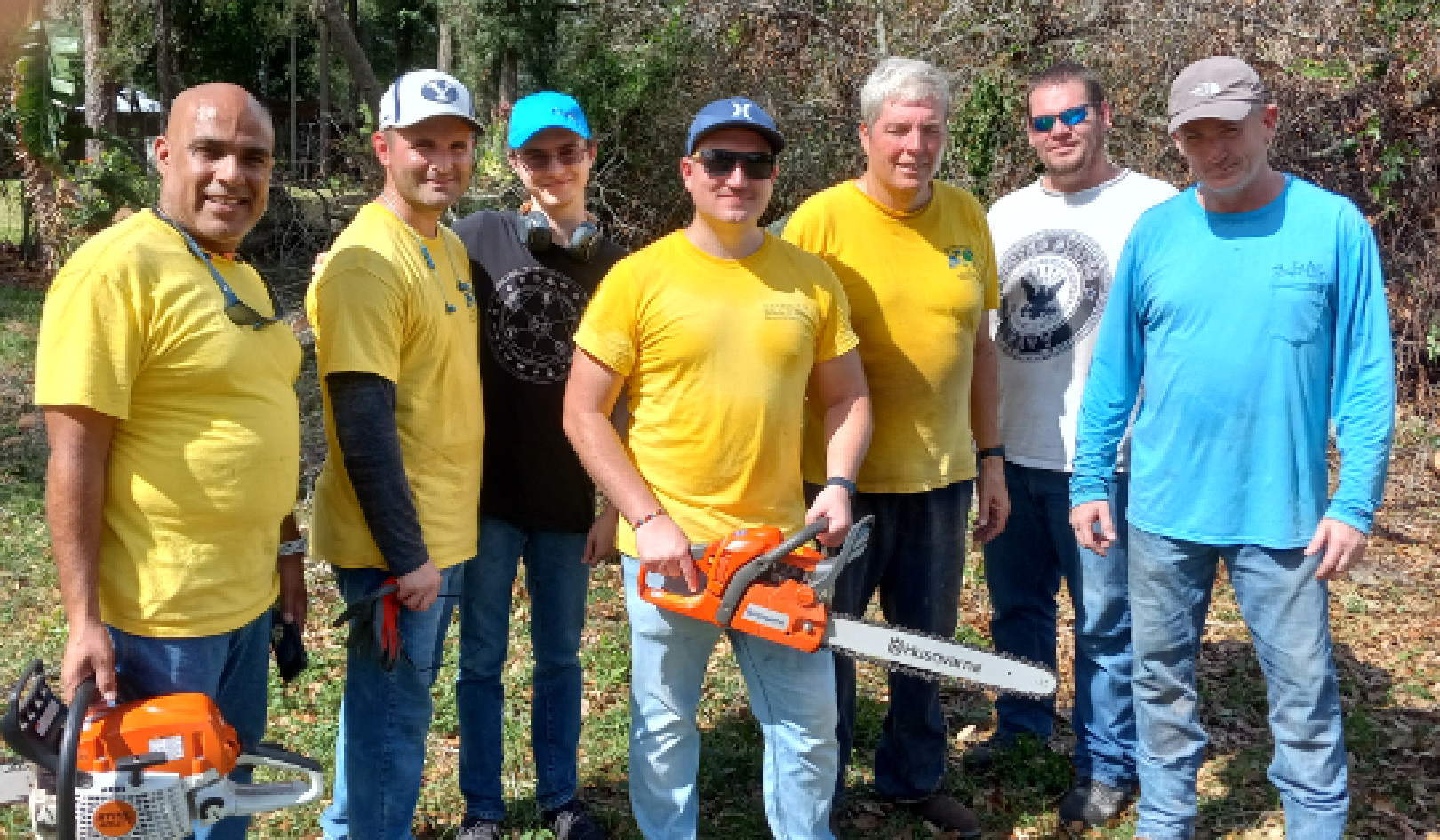
[Editor's Note: While this article is written for the stressful life of first responders, its information and advice can apply to anyone feeling stress in their day-to-day life.]
The emotional-wellness methods that follow will assist you in maintaining your energy, your activities, and your general interest in life.
1. Control Your Personal Time
When you don’t make plans well in advance, then you allow work and emotional stress to control your time. If plans are not written down and scheduled, they are far less likely to happen. So write them down. Schedule well in advance those things that nurture your spirit and show loved ones that they are the most important part of your day.
Keep your personal life separate from the job. Your personal life does not just take care of itself. If left unattended, it will deteriorate. Take responsibility for maintaining, nurturing, and enjoying your personal life. Your personal life is, in fact, your “real” life and should only be complemented by your job. Rather than passively allowing work stress and the demands of the job to control your true life, learn to live for your time away from work, when you can breathe life into your spirit and renew your emotional wellness.
Show your love by your specific behavior and by spending quality time with loved ones. Show them how much you value them — don’t just tell them. Family members need to know how important they are to you, and you can demonstrate this in different ways each day — by how often and the way you talk with them, what you do with them, and how often you include them in your life.
2. Live Life as a Survivor, Not a Victim
Do not allow your job to drain the life out of you or make you bitter, angry, frustrated, and apathetic. The job should be life affirming.
Focus only on what you can control. You can control only your own integrity, how hard you work, your own attitude, your reactions to things, your compassion, and your professionalism. Most stress in life is caused by resisting, suppressing, or fighting the things that really can’t be controlled. Learn to accept what you have no control over, and practice letting go. Accept what is, while striving to positively and constructively improve things — or at least your reaction to things that can’t be changed.
Develop the habit of asking a constructive question when you come up against an issue that makes you feel like a victim. Rather than excessively complaining and becoming bitter and cynical, ask yourself questions like “What can I do to positively change the situation and improve things?” or “How can I keep this from adversely affecting me?” Then, take control and work to improve the situation.
Live in the present moment. Don’t waste your time and energy on guilt or regret or on anxiety about the future. Learn to forgive yourself, make up for past wrongs as best you can, and move forward.
3. Proactively Control Your Finances
If you need to consistently work overtime to pay the mortgage and utilities, then your financial obligations have total control over you. Your goal should be to resist further irrational spending and whittle away at debt. Practice living within your means, and your stress will significantly diminish.
4. Consistently Get Restful, Uninterrupted Sleep
The most effective way to prevent sleep disorders is to exercise consistently, eat properly, avoid working excessive hours, and especially, avoid abusing alcohol or energy drinks and other caffeinated beverages. Being well rested will also serve to keep you interested in staying active.
5. Plan for Retirement from the Beginning of Your Career
A major emotional trap for first responders is that they tend to strongly identify with their job; and when the job is gone, often their identity and reason for living are gone. Having a financial plan, as well as activities and interests beyond your career, helps to keep you grounded and focused on the continuation of life outside your career.
Take advantage of deferred compensation plans or other savings and retirement plans. Plan for the possibility of not being able to work, as well as for remaining active in life after retirement. Suicides and other emotional suffering among first responders significantly intensify shortly after retirement or after becoming disabled, often because there was no preparation or planning. Without long-term preparation, people can easily find themselves feeling lost, disconnected from life, and emotionally desolate as they struggle to find a purpose in life beyond work.
Review your retirement plans each year at the anniversary of your hiring. Work toward realistic retirement objectives while you’re still employed. Always have a goal in sight.
6. Eliminate or Reduce Alcohol Consumption and/or Other Substance Abuse
 The choices made as a result of drinking, the adverse effects on your quality of life, work, and health — all these make it more difficult to effectively maintain the wellness of your spirit. Over the long term, symptoms of PTSD and feelings of depression, despair, or hopelessness will ultimately only intensify with drinking.
The choices made as a result of drinking, the adverse effects on your quality of life, work, and health — all these make it more difficult to effectively maintain the wellness of your spirit. Over the long term, symptoms of PTSD and feelings of depression, despair, or hopelessness will ultimately only intensify with drinking.
Drinking in moderation may be all right, but most first responders have no idea what drinking in moderation really is. The bottom line: if you feel you need to do it and you can’t limit it or stop when you try, then it’s harming you.
7. Resist the Maladaptive Coping Escape of Promiscuity
As in the case of excessive drinking and substance abuse, promiscuous behavior is a sign of deeper emotional issues that aren’t being dealt with in a constructive manner. These behaviors demonstrate poor coping abilities that need to be recognized and addressed.
Incidents of promiscuous behavior tend to increase with PTSD and other emotional issues, as well as with problems in dealing with the hypervigilance cycle. This can be devastating to a person’s family and career, and especially to a first responder’s own emotional survival and well-being. Ultimately, there is a significant emotional cost: regret, guilt, loss of integrity, and loss of self-respect.
8. Practice Relaxation Techniques, Including Meditation and Visualization
Zoning out in front of the television or computer screen may mask underlying pressures, but it actually does very little to alleviate stress. To promote the nervous system’s relaxation response, you’ll need to engage in a mentally active process that leaves the body relaxed, calm, centered, and focused.
Consistently practicing relaxation techniques reduces stress symptoms by slowing your heart rate, lowering your blood pressure, slowing your breathing rate, increasing blood flow to major muscles, reducing muscle tension and chronic pain, improving your concentration, reducing anger and frustration, and boosting your confidence in handling problems.
Healthy, effective methods of relaxation involve a short, specific time period in which you focus on relaxing and reducing stress. Effective methods include the following:
Meditation. When you catch yourself feeling pressured and thinking about your job, your relationships, or your endless to-do list, practice letting the thoughts escape while stilling yourself and sitting quietly, free of all distractions, with your eyes closed, while taking slow, deep breaths for about five to ten minutes. One form of meditation entails sitting in silence and focusing your thoughts on peaceful memories and positive thoughts and feelings. Meditating for five to ten minutes when you awaken is a great way to start the day more relaxed, focused, and centered on what you would like to achieve that day. The idea is to take your mind off your stress and focus it instead on an image that evokes a sense of calmness. The more realistic your visualization is in terms of colors, sights, sounds, and even physical sensations, the more relaxation you’ll experience. Some people of faith find it useful to use meditation each day for a few minutes to connect with their source of unlimited hope, inspiration, and purpose. Spiritual mediation and prayer connect a person to a higher calling, an inner purpose in life that sustains, heals, offers peace, and boosts a person’s resilience.
Music. When things get rough, take a detour by aligning your heartbeat with the slow tempo of a relaxing song. Listening to music, especially slow, quiet classical music, can have a tremendously relaxing effect on your mind and body. This type of music can have a beneficial effect on your physiological functions, slowing the pulse and heart rate, lowering blood pressure, and decreasing the levels of stress hormones.
Visualization. While sitting quietly for five to ten minutes with your eyes closed, hold the mental image of a positive outcome to a problem, or the image of a peaceful place you have visited or would like to visit, or in your mind’s eye watch the stress leaving your body. Creatively visualize anything that helps you to relax and calm your breathing.
Progressive muscle relaxation. While sitting comfortably and silently with your eyes closed, focus on slowly tensing and then relaxing each muscle group, starting with your toes and slowly working your way to your neck and face. This helps you become aware of physical sensations while focusing on the difference between muscle tension and relaxation. Tense your muscles for at least five seconds, and then relax for thirty seconds, and repeat. Do this while breathing deeply and slowly.
Tactical breathing / deep breathing. This technique can be practiced anywhere at any time. It has been shown to immediately reduce stress symptoms and can help alleviate certain symptoms of trauma. Practice inhaling slowly and very deeply through your nose with a breath as large as you can intake. Hold your breath for a count of four, then slowly release all the air through your mouth. Repeat this four times.
9. Serve with Compassion
Compassion in service refers to looking beyond the minimum effort necessary to handle a particular incident. Often, listening to someone longer, taking extra time to provide assistance or advice, and offering words of comfort or hope can significantly affect someone, potentially for years. Helping someone feel better, providing guidance, and caring for someone’s well-being beyond what’s expected demonstrates our capacity to serve with compassion, which gives life to our work and spirit and helps to reduce the stress of hypervigilance.
Emergency first responders affect people’s lives every day, one call after another. While serving with their hearts, first responders can find ways to help, inspire, and provide hope and comfort to others through their words, actions, and examples. The most effective officers are those driven by their hearts; this is the essence of service and the sign of a vibrant spirit. First responders should have incidents of compassion to remember during their retirement, rather than struggling to forget all the other aspects of their careers.
©2014 by Dan Willis. All Rights Reserved.
Reprinted with permission of New World Library, Novato, CA.
www.newworldlibrary.com or 800-972-6657 ext. 52.
Article Source
 Bulletproof Spirit: The First Responder's Essential Resource for Protecting and Healing Mind and Heart
Bulletproof Spirit: The First Responder's Essential Resource for Protecting and Healing Mind and Heart
by Dan Willis.
Click for info and/or to order this book on Amazon.
About the Author
 For the past twenty-five years, Captain Dan Willis has been a police officer for the La Mesa Police Department near San Diego, California. He has served as homicide detective, SWAT commander, and instructor for the San Diego Public Safety Institute, the county’s police academy, where he provides emotional-survival training.
For the past twenty-five years, Captain Dan Willis has been a police officer for the La Mesa Police Department near San Diego, California. He has served as homicide detective, SWAT commander, and instructor for the San Diego Public Safety Institute, the county’s police academy, where he provides emotional-survival training.
Watch a video with Captain Willis about Bulletproof Spirit: The First Responder's Essential Resource






















